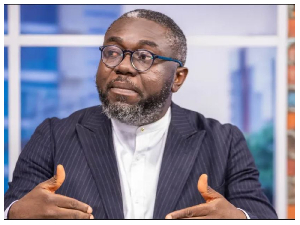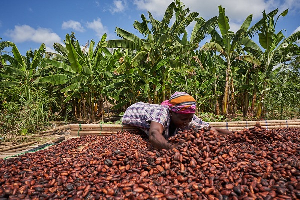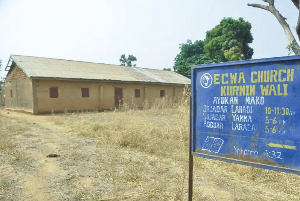By Juliana Agbo and Omonu Yax Nelson
The tension between Nigeria and South Africa reached its crescendo yesterday when Nigerian youths occupied the streets of Abuja to register their displeasure over the ceaseless and wanton xenophobic attacks against Nigerians and their business interests in South Africa.
Though analysts have acknowledged that protests are not the Nigerian way; they, however, agreed that, with the current plight of Nigerians in South Africa, the inaction of the Federal Government would cause more harm than good
In throwing weight behind the Nigerian youth protest, pundits alleged that the South African authorities’ inaction is seen to be fanning the ambers of further willful attacks against foreigners; most notably Nigerians in the country. The recent protest by the Nigerian youths was informed by the perceived lukewarm reactions of the Nigerian government to the plight of its citizens in South Africa.
Youths under the umbrella of National Association of Nigerian Students (NANS) took to the streets in protest against the xenophobic attacks, extra-judicial killings and mindless looting of the businesses of Nigerians in South Africa. According to some media reports, not LEADERSHIP, the protest later degenerated to invasion of South African owned Mobile Telecommunication Network, MTN, regional office in Abuja.
Similarly, South Africans, yesterday, took to the street to protest against illegal migrants, prostitution, drugs trafficking and cartel. However, Analysts are of the opinion that, it is not surprising to see South Africans protesting at every slightest provocation because they are yet to overcome the hangover of the protest that characterized their everyday life in the apartheid era.
“Why are this South Africans very ungrateful”? That was the question, Ochenya Samuel, a sociologist mother of four, who claimed to have contributed ‘One Naira’ as a new secondary student in 1989, as part of South African Relief Fund, threw back at me, when I sought her view on the recurrent xenophobic attacks on fellow Africans, especially, Nigerians by South Africans.
She said that the ceaseless xenophobic attacks could be seen as one dark spot in continental solidarity. She bemoaned the inability of the African Union, AU, to tackle the ugly situation in South Africa.
She submitted that the apology rendered by South African authorities so far fell short of commitment that can stop the ongoing carnage against Nigerians in South Africa.
She dismissed the statement credited to the South African Ambassador, Lulu Louis Mnguni, that South Africa shares time-tested relationship with Nigeria. She said, the disposition of South African authorities to the crisis, so far, did not confirm this position.
Ikechukwu Anyene, President, the Nigeria Union in South Africa, told NAN on telephone from Pretoria, that the attacks began at 4AM.
“As we speak, five buildings with Nigerian businesses, including a church have been looted and burned by South Africans. One of the buildings is a mechanic garage with 28 cars under repairs, with other vital documents, were burned during the attack. Also, the pastor of the church was wounded and is in the hospital receiving treatment,” he said.
Also on 29 December, 2016, Tochukwu Nnadi was killed in an extra-judicial manner. This drew outrage from Nigerians both at home and in South Africa.
While on a visit to the South African Ambassador to Nigeria, His Excellency Lulu Louis Mnguni, on 7 February, the Senior Special Assistant to the President on Foreign Affairs and Diaspora Matters, Hon Abike Dabiri-Erewa revealed to newsmen that “In two years, Nigeria have lost 116 of its citizens in South Africa to extra-judicial killings and, in 2016 alone, 20 were killed.”
Most striking from the SSA’s revelation is the fact that 63% of the extra-judicial killings are perpetrated by the South African Police.
What has left International Affairs experts and laymen alike, wondering aloud, is the fact that, despite the subtle approach adopted by Nigerian authorities to sort out the whole saga, the South African authorities’ lackadaisical disposition towards the plight of the victims of xenophobic attacks and extra-judicial killings portends that these actions are pre-meditated.
An International Affairs analysts claimed that the South African leaders at all levels are accomplices in these dastardly act. To prove his point, he alluded to the 2015 rioting in Durban, which broke out, following comments by Goodwill Zwelithini, king of the Zulu ethnic group and figurehead of the eastern province of KwaZulu-Natal, which criticised the presence of immigrants in South Africa.
Zwelithini later said his comments had been misinterpreted and that he had only criticised high crime levels.
A time-proven African saying has it that, “If you rescue an animal from being killed, it will speed-off but if you save a human being, he will turn around and kill you.” This saying perhaps, explains the South African scenario. Angling on this contradiction, experts has tried to offer some explanations to the real cause of xenophobia. This theory says the crisis has conspiracy undertone.
According to this school of thought, the mistrust and hatred amongst other Africans and black South Africans is the hangover of Apartheid legacies. A veteran in International Affairs, who pleaded anonymity, opined that, when it became clear to the F.W. de Clarke led apartheid government in South Africa that, it could no longer sustain the draconian system; a time-bomb was then planted by opening South African borders to South African neighboring and other countries on the continent.
That is, after the white Afrikaans had firmly secured 80% of the coastal country’s economy in their grip. According to the plan, by the time the country attains majority rule, the remaining space will be grossly inadequate for black South Africans, talk less of other Africans. This will keep the blacks in perpetual struggle for opportunities with other blacks.
However, Ambassador Mnguni disagree with this conspiracy theory, citing poverty, which elicited envy and mistrust as one of the causes of attacks against foreigners.
“I think another thing we can do is to address the issue of poverty. So as to reduce the desperateness among our people which most times lead to mutual suspicion and hatred?”
Expert opinions tends to agree with Mnguni, as the perception is so rife in the international system that the benefits of the freedom that was attained in 1994, with the dismantling of apartheid system, has not really trickled down to ordinary South Africans, rather, it has created clique of corrupt leaders, if the rumblings in the ANC and its leadership are anything to go by.
But the ordinary Nigerian and other Africans believe that, if foreigners can come to South Africa and succeed in business and other endeavor, the South African Youths has no excuse. They believe that the envy against other Africans is out of sheer paranoia, ‘laziness, lousy life-style, lack of ingenuity and inability to exploit the opportunities abound in their country.
This class of thought believe that, even if, all the jobs in South Africa is left for the indigenous South Africans, they can still not measure-up because of laziness, drunkenness and womanizing.
They re-echoed the suggestion of Ambassador Mnguni that since Nigerians are good at doing business, South Africa small business owners can learn from them;
“Nigerians must work with South Africans because Nigerians are good at doing business. The small scale business people in South Africa can learn from the Nigerian businessmen. It is by working together that people can discover that they are one people.”
However, they are those who believe that, the excesses of Nigerians in South Africa is responsible, in part, for xenophobic attacks. This group believe that, Nigerian trading community in South Africa is dominated by the Igbo race, who has been acknowledged by the late literally icon, Chinua Achebe to be full of excesses, when it comes to disdainful flaunting wealth and achievements.
They also opine that the incredibly high number of Nigerians in foreign prisons (over 15,000), a good number of whom are on death row, is a pointer to the level of desperation of Nigerians in Diaspora and how far Nigerians, in general, can go to have their ways.
Yet, others argue that the Nigeria government is morally defeated to challenge foreign territories for maltreating their nationals because, internally, the Nigerian government has failed woefully to protect its citizens against fellow citizens. They cited the unabated killings in Southern Kaduna, even, when the area is under curfew.
According to them, at home, Nigerian prisons are full of innocent people, with many of them on death row. They advise the Nigerian government to put measures in place, to expand the frontiers of economic opportunities for its citizens. So that the desperation to travel to other lands for green pasture will be curtailed.
Currently, the volume of trade between Nigeria and South Africa stands at about 55 billion Rand. According to Mnguni, ‘That is why we are working with Nigeria on how to diversify our economies. We are currently having some South Africans who are on ground in Jos, Kaduna and many parts of the country in trying to make sure we help in the field of mining and steel. We are also working together in the area of energy. We are learning from Nigeria in the field of oil and gas.”
In pursuance of greater ‘mutual’ economic benefits, two South African ministers recently visited Nigeria, one in December and minister of energy in January. Ambassador Mnguni said, “They are talking with their Nigerian counterparts on how we can work together. We want to learn from Nigeria in the field of oil and gas because in the nearest future South Africa want to venture into these areas also.
In one month alone, Nigeria issued 900 visas to South Africans who are coming to Nigeria to do business.
This article was first published on February 28, 2017 on the ‘Leadership’ website.
Opinions of Wednesday, 1 March 2017
Columnist: Juliana Agbo and Omonu Yax Nelson















